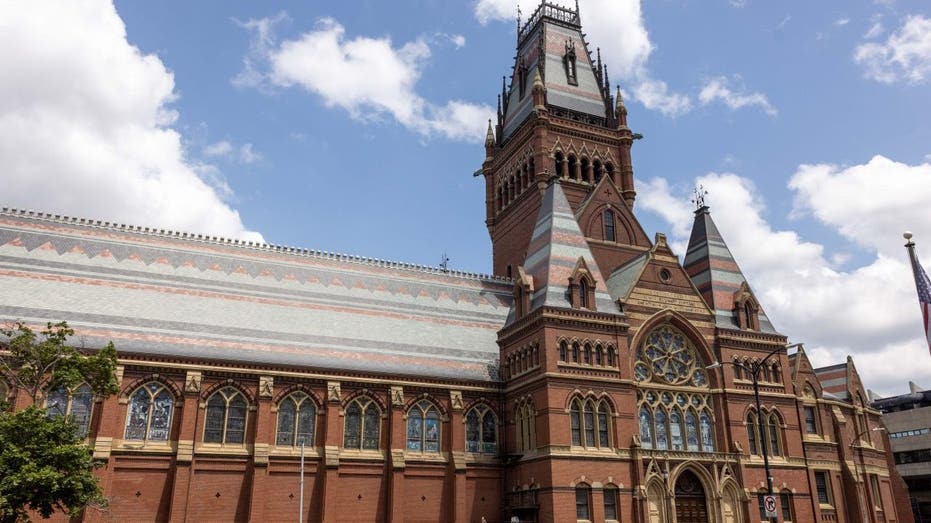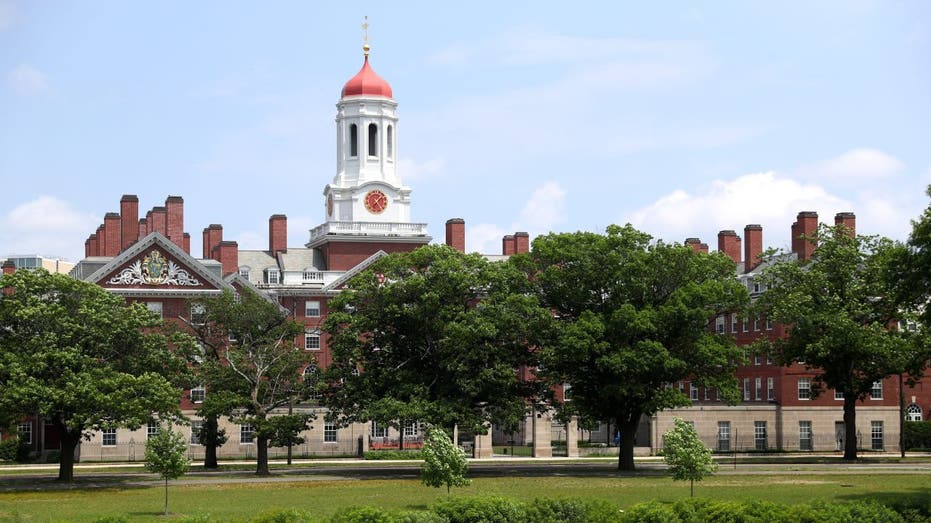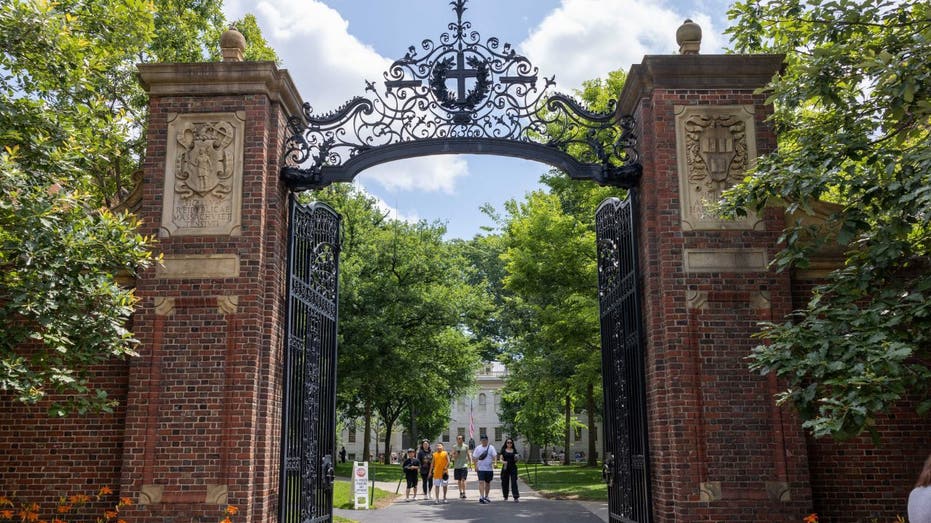Department of Education investigating Harvard over legacy admissions practices
Harvard University previously faced scrutiny on its use of affirmative action policies that ultimately led to a Supreme Court ruling against the practice
Harvard University is being investigated by the Department of Education regarding their legacy admissions process.
The famous university is facing an investigation under Title VI of the Civil Rights Act following a complaint filed by Lawyers for Civil Rights Boston.
"The Office for Civil Rights can confirm that there is an open investigation of Harvard University under Title VI of the Civil Rights Act of 1964," a DOE spokesperson told Fox News Digital. "We do not comment on open investigations."
HARVARD REACTS TO SUPREME COURT AFFIRMATIVE ACTION RULING

Memorial and Annenberg Halls at Harvard University in Cambridge, Massachusetts. The U.S. Supreme Court previously ruled that race-conscious admission policies used by Harvard and the University of North Carolina violate the Constitution. (Photo by Scott Eisen/Getty Images / Getty Images)
Lawyers for Civil Rights (LCR) Boston asserted in their complaint that "legacy" and donor admissions unfairly benefit White students.
"Nearly 70% of Harvard’s donor-related and legacy applicants are white, and they receive a substantial boost based on their status," the group wrote of the complaint. "Donor-related applicants are nearly 7 times more likely to be admitted than non-donor-related applicants, and legacies are nearly 6 times more likely to be admitted."
"There’s no birthright to Harvard. As the Supreme Court recently noted, ‘eliminating racial discrimination means eliminating all of it.’ There should be no way to identify who your parents are in the college application process," Executive Director of LCR Ivan Espinoza-Madrigal wrote. "Why are we rewarding children for privileges and advantages accrued by prior generations? Your family’s last name and the size of your bank account are not a measure of merit, and should have no bearing on the college admissions process."
BILLIONAIRE KEN GRIFFIN GIVES $300M TO HARVARD
Harvard spokeswoman Nicole Rura told The Washington Examiner that the institution is reviewing its admissions system "to assure compliance with the law and to carry forward Harvard’s longstanding commitment to welcoming students of extraordinary talent and promise who come from a wide range of backgrounds, perspectives, and life experiences."
"Our review includes examination of a range of data and information, along with learnings from Harvard’s efforts over the past decade to strengthen our ability to attract and support a diverse intellectual community that is fundamental to our pursuit of academic excellence," Rura told The Examiner.
She concluded, "As this work continues, and moving forward, Harvard remains dedicated to opening doors to opportunity and to redoubling our efforts to encourage students from many different backgrounds to apply for admission."
CORPORATE DIVERSITY POLICIES MAY FACE SCRUTINY AFTER SUPREME COURT'S AFFIRMATIVE ACTION RULING

A view of the campus of Harvard University in Cambridge, Massachusetts. (Photo by Maddie Meyer/Getty Images / Getty Images)
The new investigation comes on the heels of a Supreme Court decision that affirmative action practices in college admissions are unconstitutional.
Students for Fair Admissions initially sued Harvard College in 2014 for violating the same part of the Civil Rights Act, which "prohibits discrimination on the basis of race, color, or national origin in any program or activity that receives Federal funds or other Federal financial assistance."
Harvard's leadership declared in the statement that "diversity and difference are essential to academic excellence," and vowed to "preserve" the university's essential values. The statement also highlighted a potential route by which Harvard could continue to account for race in admissions in some form.
GET FOX BUSINESS ON THE GO BY CLICKING HERE

People walk through the gate on Harvard Yard at the Harvard University campus in Cambridge, Massachusetts. The U.S. Supreme Court ruling is expected to bring an end to affirmative action in higher education. ((Photo by Scott Eisen/Getty Images) / Getty Images)
"The Court held that Harvard College’s admissions system does not comply with the principles of the equal protection clause embodied in Title VI of the Civil Rights Act," the statement read. "The Court also ruled that colleges and universities may consider in admissions decisions 'an applicant’s discussion of how race affected his or her life, be it through discrimination, inspiration, or otherwise.' We will certainly comply with the Court’s decision."
"We write today to reaffirm the fundamental principle that deep and transformative teaching, learning, and research depend upon a community comprising people of many backgrounds, perspectives, and lived experiences," the statement continued. "That principle is as true and important today as it was yesterday. So too are the abiding values that have enabled us — and every great educational institution — to pursue the high calling of educating creative thinkers and bold leaders, of deepening human knowledge, and of promoting progress, justice and human flourishing."
Fox Business's Anders Hagstrom contributed to this report.




















